Project reference
Dieses Projekt wird aus Mitteln des Bundesministeriums für Klimaschutz, Umwelt, Energie, Mobilität, Innovation und gefördert und im Rahmen des Programms „FEMtech Forschungsprojekte 2023″ (FO999913010) durchgeführt.

Dieses Projekt wird aus Mitteln des Bundesministeriums für Klimaschutz, Umwelt, Energie, Mobilität, Innovation und gefördert und im Rahmen des Programms „FEMtech Forschungsprojekte 2023″ (FO999913010) durchgeführt.
Datenvisualisierungen spielen im Gesundheitsbereich eine wichtige Rolle – im Bereich von sogenannten subjektiven Symptomen wie Schmerzen, Juckreiz oder Empfindungsstörungen ist dies jedoch eine Herausforderung. Darüber hinaus ist die Kommunikation darüber von vergeschlechtlichten Hierarchien und Zeitdruck geprägt.
Zentrales Ziel von Embodied Perceptions ist die Konzipierung eines gender- und diversitätssensiblen Ansatzes für bedarfsgerecht (z.B. an Geschlecht und Körperform anpassbare) Visualisierungen subjektiver Symptome in einem Selbst- und Fremddokumentationssystem, das Patient*innen in der Dokumentation und Kommunikation unterstützt und von medizinischem Personal eingesetzt werden kann.
AIT – Austrian Institute of Technology (AT)
RISC Software GmbH (AT)
SYNYO GmbH (AT)
EURAG Österreich (AT)
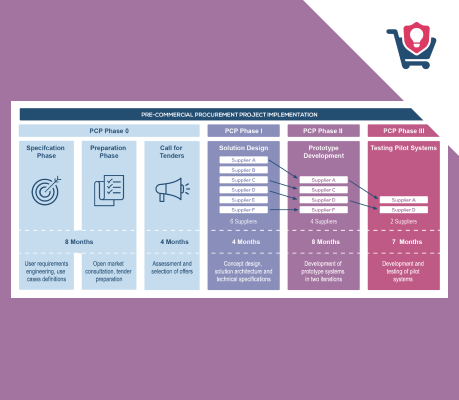 https://www.synyo.com/wp-content/uploads/SYNYO-NEWS-featured-image-NEW01006503EN.png
400
459
SYNYO
https://www.synyo.com/wp-content/uploads/2017/09/synyo-logo.png
SYNYO2022-09-04 06:00:162023-01-18 13:49:40iProcureSecurity PCP: Implementation of Phase 1 – Solution Design.
https://www.synyo.com/wp-content/uploads/SYNYO-NEWS-featured-image-NEW01006503EN.png
400
459
SYNYO
https://www.synyo.com/wp-content/uploads/2017/09/synyo-logo.png
SYNYO2022-09-04 06:00:162023-01-18 13:49:40iProcureSecurity PCP: Implementation of Phase 1 – Solution Design.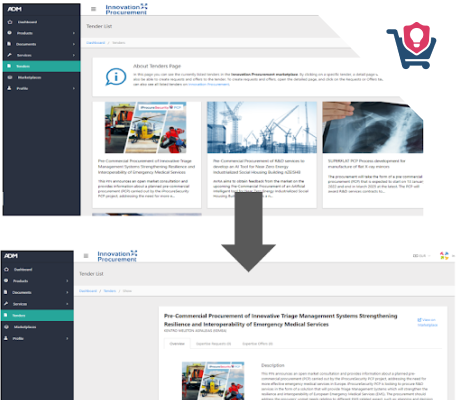 https://www.synyo.com/wp-content/uploads/SYNYO-NEWS-featured-image-NEW01006502EN.png
400
459
SYNYO
https://www.synyo.com/wp-content/uploads/2017/09/synyo-logo.png
SYNYO2022-03-18 13:26:062023-01-18 13:38:39iProcureSecurity PCP: Project officially launched 6,7 mio. EUR Call for Tenders on Innovation Procurement
https://www.synyo.com/wp-content/uploads/SYNYO-NEWS-featured-image-NEW01006502EN.png
400
459
SYNYO
https://www.synyo.com/wp-content/uploads/2017/09/synyo-logo.png
SYNYO2022-03-18 13:26:062023-01-18 13:38:39iProcureSecurity PCP: Project officially launched 6,7 mio. EUR Call for Tenders on Innovation Procurement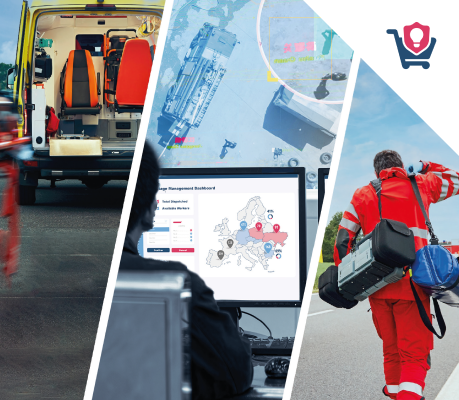 https://www.synyo.com/wp-content/uploads/SYNYO-NEWS-featured-image-NEW01006501EN.png
400
459
SYNYO
https://www.synyo.com/wp-content/uploads/2017/09/synyo-logo.png
SYNYO2021-09-03 17:55:352023-01-18 13:25:23iProcureSecurity PCP: Pre-Commerical Procurement (PCP) for Innovate Triage Management Systems
https://www.synyo.com/wp-content/uploads/SYNYO-NEWS-featured-image-NEW01006501EN.png
400
459
SYNYO
https://www.synyo.com/wp-content/uploads/2017/09/synyo-logo.png
SYNYO2021-09-03 17:55:352023-01-18 13:25:23iProcureSecurity PCP: Pre-Commerical Procurement (PCP) for Innovate Triage Management Systems https://www.synyo.com/wp-content/uploads/SYNYO-NEWS-featured-image-01-NEW01004405EN.png
400
459
SYNYO
https://www.synyo.com/wp-content/uploads/2017/09/synyo-logo.png
SYNYO2020-12-21 08:05:062022-05-16 09:42:07iProcureSecurity: Collaboration between EMS practitioners in Europe for coordination of innovation procurement
https://www.synyo.com/wp-content/uploads/SYNYO-NEWS-featured-image-01-NEW01004405EN.png
400
459
SYNYO
https://www.synyo.com/wp-content/uploads/2017/09/synyo-logo.png
SYNYO2020-12-21 08:05:062022-05-16 09:42:07iProcureSecurity: Collaboration between EMS practitioners in Europe for coordination of innovation procurement https://www.synyo.com/wp-content/uploads/SYNYO-NEWS-featured-image-NEW01005303EN.png
400
459
SYNYO
https://www.synyo.com/wp-content/uploads/2017/09/synyo-logo.png
SYNYO2020-09-03 01:43:062022-05-16 14:49:44ICT-based Solutions in Austrian Care Homes - Policy Review and Recommendations
https://www.synyo.com/wp-content/uploads/SYNYO-NEWS-featured-image-NEW01005303EN.png
400
459
SYNYO
https://www.synyo.com/wp-content/uploads/2017/09/synyo-logo.png
SYNYO2020-09-03 01:43:062022-05-16 14:49:44ICT-based Solutions in Austrian Care Homes - Policy Review and Recommendations https://www.synyo.com/wp-content/uploads/SYNYO-NEWS-featured-image-NEW01004404EN.png
400
459
SYNYO
https://www.synyo.com/wp-content/uploads/2017/09/synyo-logo.png
SYNYO2020-08-05 19:55:332022-02-04 13:52:24iProcureSecurity: Partnership for the procurement of innovative solution in the area of Triage Management Systems
https://www.synyo.com/wp-content/uploads/SYNYO-NEWS-featured-image-NEW01004404EN.png
400
459
SYNYO
https://www.synyo.com/wp-content/uploads/2017/09/synyo-logo.png
SYNYO2020-08-05 19:55:332022-02-04 13:52:24iProcureSecurity: Partnership for the procurement of innovative solution in the area of Triage Management Systems https://www.synyo.com/wp-content/uploads/SYNYO-NEWS-featured-image-NEW01004403EN.png
400
459
SYNYO
https://www.synyo.com/wp-content/uploads/2017/09/synyo-logo.png
SYNYO2020-05-10 22:39:132022-02-04 11:48:11iProcureSecurity: Strategic Partnership of Emergency Medical Service Practitioners
https://www.synyo.com/wp-content/uploads/SYNYO-NEWS-featured-image-NEW01004403EN.png
400
459
SYNYO
https://www.synyo.com/wp-content/uploads/2017/09/synyo-logo.png
SYNYO2020-05-10 22:39:132022-02-04 11:48:11iProcureSecurity: Strategic Partnership of Emergency Medical Service Practitioners https://www.synyo.com/wp-content/uploads/SYNYO-NEWS-featured-image-NEW01005302EN.png
400
459
SYNYO
https://www.synyo.com/wp-content/uploads/2017/09/synyo-logo.png
SYNYO2020-03-08 19:42:032022-05-16 14:09:39IN-ICT-CARE: Shedding light on the scientific state of the art regarding telemonitoring and caregiving
https://www.synyo.com/wp-content/uploads/SYNYO-NEWS-featured-image-NEW01005302EN.png
400
459
SYNYO
https://www.synyo.com/wp-content/uploads/2017/09/synyo-logo.png
SYNYO2020-03-08 19:42:032022-05-16 14:09:39IN-ICT-CARE: Shedding light on the scientific state of the art regarding telemonitoring and caregiving https://www.synyo.com/wp-content/uploads/SYNYO-NEWS-featured-image-NEW01004402EN.png
400
459
SYNYO
https://www.synyo.com/wp-content/uploads/2017/09/synyo-logo.png
SYNYO2019-11-04 08:35:032022-02-04 11:48:42iProcureSecurity: Knowledge database and online space for innovation activities in the EMS field
https://www.synyo.com/wp-content/uploads/SYNYO-NEWS-featured-image-NEW01004402EN.png
400
459
SYNYO
https://www.synyo.com/wp-content/uploads/2017/09/synyo-logo.png
SYNYO2019-11-04 08:35:032022-02-04 11:48:42iProcureSecurity: Knowledge database and online space for innovation activities in the EMS field https://www.synyo.com/wp-content/uploads/SYNYO-NEWS-featured-image-NEW01005301EN.png
400
459
SYNYO
https://www.synyo.com/wp-content/uploads/2017/09/synyo-logo.png
SYNYO2019-09-04 09:47:402022-05-16 11:38:40IN-ICT-CARE: Project to improve the quality of health care services through ICT
https://www.synyo.com/wp-content/uploads/SYNYO-NEWS-featured-image-NEW01005301EN.png
400
459
SYNYO
https://www.synyo.com/wp-content/uploads/2017/09/synyo-logo.png
SYNYO2019-09-04 09:47:402022-05-16 11:38:40IN-ICT-CARE: Project to improve the quality of health care services through ICT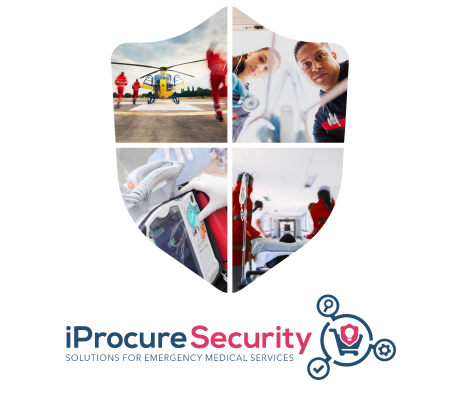 https://www.synyo.com/wp-content/uploads/SYNYO-NEWS-featured-image-NEW01004401EN.png
400
459
SYNYO
https://www.synyo.com/wp-content/uploads/2017/09/synyo-logo.png
SYNYO2019-05-12 08:11:042021-02-03 09:27:38iProcureSecurity: Strategic Partnership of Emergency Medical Service Practitioners for Coordination of Innovation Procurement
https://www.synyo.com/wp-content/uploads/SYNYO-NEWS-featured-image-NEW01004401EN.png
400
459
SYNYO
https://www.synyo.com/wp-content/uploads/2017/09/synyo-logo.png
SYNYO2019-05-12 08:11:042021-02-03 09:27:38iProcureSecurity: Strategic Partnership of Emergency Medical Service Practitioners for Coordination of Innovation Procurement https://www.synyo.com/wp-content/uploads/SYNYO-NEWS-featured-image-active-advice-article-old.png
400
459
SYNYO
https://www.synyo.com/wp-content/uploads/2017/09/synyo-logo.png
SYNYO2018-11-30 07:18:332021-08-10 08:46:41ActiveAdvice: Decision support with a network of authorised active advisors and a digital platform
https://www.synyo.com/wp-content/uploads/SYNYO-NEWS-featured-image-active-advice-article-old.png
400
459
SYNYO
https://www.synyo.com/wp-content/uploads/2017/09/synyo-logo.png
SYNYO2018-11-30 07:18:332021-08-10 08:46:41ActiveAdvice: Decision support with a network of authorised active advisors and a digital platform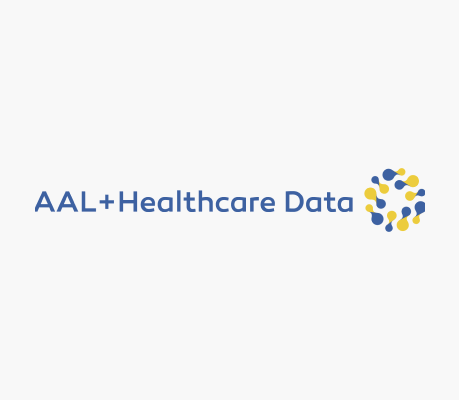 https://www.synyo.com/wp-content/uploads/SYNYO-NEWS-featured-image-NEW01003501EN.png
400
459
SYNYO
https://www.synyo.com/wp-content/uploads/2017/09/synyo-logo.png
SYNYO2018-11-07 05:17:522021-07-08 13:23:53AAL+Healthcare Data: Project launched to explore usage scenarios and data structures for the distribution of healthcare data.
https://www.synyo.com/wp-content/uploads/SYNYO-NEWS-featured-image-NEW01003501EN.png
400
459
SYNYO
https://www.synyo.com/wp-content/uploads/2017/09/synyo-logo.png
SYNYO2018-11-07 05:17:522021-07-08 13:23:53AAL+Healthcare Data: Project launched to explore usage scenarios and data structures for the distribution of healthcare data. https://www.synyo.com/wp-content/uploads/2018/03/ActiveAdvice-04.png
423
900
SYNYO
https://www.synyo.com/wp-content/uploads/2017/09/synyo-logo.png
SYNYO2018-03-01 15:29:142018-03-01 15:33:08ActiveAdvice Results of End-User Tests
https://www.synyo.com/wp-content/uploads/2018/03/ActiveAdvice-04.png
423
900
SYNYO
https://www.synyo.com/wp-content/uploads/2017/09/synyo-logo.png
SYNYO2018-03-01 15:29:142018-03-01 15:33:08ActiveAdvice Results of End-User Tests https://www.synyo.com/wp-content/uploads/2017/04/AAL2B1.png
423
900
SYNYO
https://www.synyo.com/wp-content/uploads/2017/09/synyo-logo.png
SYNYO2017-04-11 15:19:132017-05-18 11:41:03Developing the ActiveAdvice Information & Awareness Hub
https://www.synyo.com/wp-content/uploads/2017/04/AAL2B1.png
423
900
SYNYO
https://www.synyo.com/wp-content/uploads/2017/09/synyo-logo.png
SYNYO2017-04-11 15:19:132017-05-18 11:41:03Developing the ActiveAdvice Information & Awareness Hub https://www.synyo.com/wp-content/uploads/2017/02/ActiveAdvice-03.png
423
900
SYNYO
https://www.synyo.com/wp-content/uploads/2017/09/synyo-logo.png
SYNYO2016-11-17 10:10:592017-02-17 10:19:14Structuring the Stakeholder Landscape
https://www.synyo.com/wp-content/uploads/2017/02/ActiveAdvice-03.png
423
900
SYNYO
https://www.synyo.com/wp-content/uploads/2017/09/synyo-logo.png
SYNYO2016-11-17 10:10:592017-02-17 10:19:14Structuring the Stakeholder Landscape https://www.synyo.com/wp-content/uploads/2016/09/ActiveAdvice-02.png
423
900
SYNYO
https://www.synyo.com/wp-content/uploads/2017/09/synyo-logo.png
SYNYO2016-08-04 12:58:582016-12-20 13:39:34Studying AAL User Information Needs
https://www.synyo.com/wp-content/uploads/2016/09/ActiveAdvice-02.png
423
900
SYNYO
https://www.synyo.com/wp-content/uploads/2017/09/synyo-logo.png
SYNYO2016-08-04 12:58:582016-12-20 13:39:34Studying AAL User Information Needs https://www.synyo.com/wp-content/uploads/2016/09/ActiveAdvice-01.png
423
900
SYNYO
https://www.synyo.com/wp-content/uploads/2017/09/synyo-logo.png
SYNYO2016-05-18 12:55:192020-12-17 12:41:16A novel Cloud of AAL Products and Services
https://www.synyo.com/wp-content/uploads/2016/09/ActiveAdvice-01.png
423
900
SYNYO
https://www.synyo.com/wp-content/uploads/2017/09/synyo-logo.png
SYNYO2016-05-18 12:55:192020-12-17 12:41:16A novel Cloud of AAL Products and Services https://www.synyo.com/wp-content/uploads/SYNYO-NEWS-featured-image-NEW01001801EN.png
400
459
SYNYO
https://www.synyo.com/wp-content/uploads/2017/09/synyo-logo.png
SYNYO2016-04-13 15:46:072021-02-03 09:04:02ActiveAdvice: Decision-support in the search for smart solutions supporting independent living
https://www.synyo.com/wp-content/uploads/SYNYO-NEWS-featured-image-NEW01001801EN.png
400
459
SYNYO
https://www.synyo.com/wp-content/uploads/2017/09/synyo-logo.png
SYNYO2016-04-13 15:46:072021-02-03 09:04:02ActiveAdvice: Decision-support in the search for smart solutions supporting independent living
| Cookie | Duration | Description |
|---|---|---|
| cookielawinfo-checkbox-analytics | 11 months | This cookie is set by GDPR Cookie Consent plugin. The cookie is used to store the user consent for the cookies in the category "Analytics". |
| cookielawinfo-checkbox-functional | 11 months | The cookie is set by GDPR cookie consent to record the user consent for the cookies in the category "Functional". |
| cookielawinfo-checkbox-necessary | 11 months | This cookie is set by GDPR Cookie Consent plugin. The cookies is used to store the user consent for the cookies in the category "Necessary". |
| cookielawinfo-checkbox-others | 11 months | This cookie is set by GDPR Cookie Consent plugin. The cookie is used to store the user consent for the cookies in the category "Other. |
| cookielawinfo-checkbox-performance | 11 months | This cookie is set by GDPR Cookie Consent plugin. The cookie is used to store the user consent for the cookies in the category "Performance". |
| viewed_cookie_policy | 11 months | The cookie is set by the GDPR Cookie Consent plugin and is used to store whether or not user has consented to the use of cookies. It does not store any personal data. |

MELCAYA
/0 Comments/in MELCAYA, Projects /by SYNYONovel health care strategies for melanoma in children, adolescents and young adults
BIOMATDB
/0 Comments/in BIOMATDB, Projects /by SYNYOBIOMATDB aims to create an advanced database for biomaterials providing detailed information on its properties. Flexible data analysis and visualisation tools support the search and selection process based on analyses of the results of biological testing of biomaterials from the scientific literature to incorporate data on as many of the material properties as possible.
AAL+Healthcare Data
/0 Comments/in AAL+Healthcare, Projects /by SYNYOExploration of Usage Scenarios, Dataset Structures, Legal Considerations and Business Models for the Data Market Austria